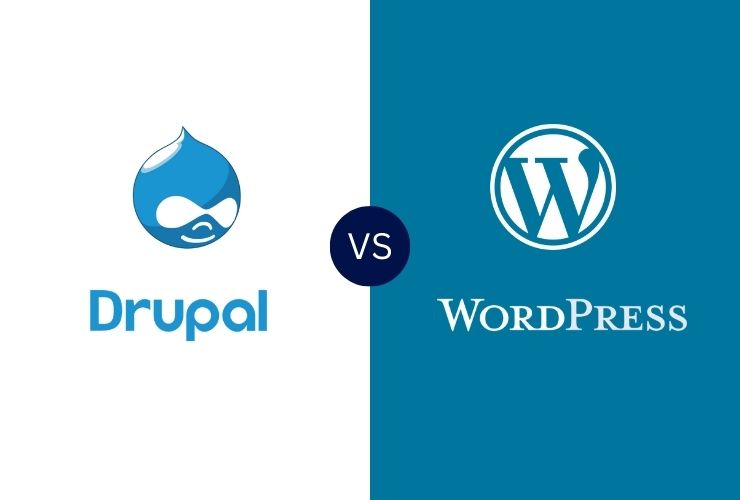The CMS may be vital when designing your business website, and when this comes to that, Drupal and WordPress are major players that, depending on which is chosen, bring along an entirely new set of strengths to the table. So for your guidance in choosing what’s better between Drupal or WordPress-as well as on performance, scalability, and security considerations, here is the comparison and contrast:
What is WordPress?
WordPress is the world’s most used CMS and powers more than 40% of all sites on the Internet. It owes its popularity to the qualities of simplicity and flexibility. Being user-friendly, coupled with thousands of themes and plugins in a library, WordPress offers everything from a personal blog to a full-scale e-commerce site, even for the untechie person.
What is Drupal?
Drupal is a heavyweight, best suited for big and complicated websites. While the learning curve is steep, it stands out with customizations, scalability, and security. Drupal is a darling for business, especially for those requiring control over the website structure and its features, making it great for enterprise and complex needs.
Drupal vs. WordPress: A Head-to-Head Comparison
1. Ease of Use
WordPress: Best suited for beginners. Its user-friendly interface makes it even easier for non-technical persons to build and manage a website.
Drupal: Best suited for developers or businesses willing to invest in training. It has great tools but requires more technical acumen.
2. Flexibility and Customization
WordPress: Highly flexible, with thousands of themes and plugins. Advanced customizations may involve coding or additional plugins.
Drupal: The gold standard for customization. It is perfect for a content-intensive, highly niche website where every feature can be customized.
3. Security
WordPress: Although generally secure, its popularity makes it a frequent target for hackers. Regular updates and security plugins are a must.
Drupal: Known for high security. It is often used by government agencies and enterprises, offering robust access control and fewer vulnerabilities.
4. Scalability
WordPress: Suitable for small to medium-sized sites but can be difficult when scaling up to handle large amounts of traffic or complex setups.
Drupal: Scalable. It accommodates large volumes of content, high traffic, and is a perfect fit for enterprise-level websites.
5. SEO Capabilities
WordPress: SEO-friendly right off the bat. With a tool like Yoast SEO, optimization for search engines is simplified.
Drupal: Has strong SEO capabilities, but setup and more technical expertise are required to be executed.
6. Community and Support
WordPress: Has the biggest international community for tutorials, forums, and all kinds of plugins on most topics.
Drupal: This has a smaller but a strong community. It offers thorough documentation along with professional support for advance users.
So, Which One Would You Like?
If you decide that WordPress would be what you need when……
You run a small-to-medium-sized business, and this would require creating a simple, easy-to-manage website with minimum technical complexities. WordPress is well-suited to creating rapid, catchy, and working websites.
Use Drupal when:
Your business will require an adaptable, scaleable, highly customizable, and feature-rich website with some advanced security. It is appropriate to handle big projects or websites where specific requirements with much complexity will be addressed.
Both WordPress and Drupal are excellent CMS sites, but the choice will depend on your business needs. WordPress is excellent for ease of use and multipurpose use, which makes it ideal for small businesses or companies who do not have a technical department. Drupal is ideal for larger organizations that require customization, heavy security, and scalability.













 Database Development
Database Development












































